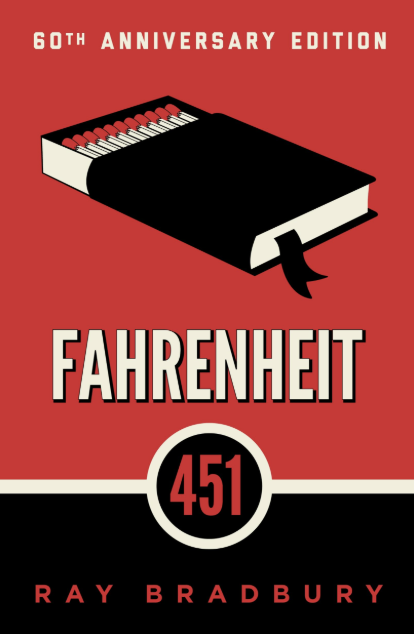“It was a pleasure to burn.” (Ray Bradbury, Fahrenheit 451)
Ray Bradbury’s Fahrenheit 451 is a cornerstone of dystopian literature that still resonates powerfully today. First published in 1953, this novel continues to feel eerily prescient in an age of digital distraction and information suppression. What hooked me wasn’t just its famous line—“It was a pleasure to burn”—but its unflinching look at censorship, conformity, and the cost of apathy.
Summary:
In a future society where books are banned and “firemen” burn them to prevent independent thought, Guy Montag begins to question his role as a book burner. As he slowly awakens to the emptiness of the world around him, Montag becomes increasingly disillusioned with the anti-intellectual culture he once embraced. What follows is a journey of rebellion, reflection, and renewal as he seeks truth in a society that has outlawed it.
Review:
Bradbury’s writing is poetic, symbolic, and at times deliberately disorienting. His style leans into metaphor and repetition, which enhances the book’s dreamlike (and nightmarish) quality. While the prose may feel dense or abstract for some, it reinforces the thematic weight of the narrative. It’s not an easy read in terms of style, but it is deeply rewarding.
Montag is a nuanced and evolving protagonist. His transformation—from a passive enforcer of societal norms to a questioning dissenter—is the heart of the story. Supporting characters like Clarisse and Beatty serve as philosophical foils, presenting contrasting ideologies in compact but impactful roles. The characters may not all be deeply fleshed out, but they are powerful symbols within the narrative
The book explores themes of censorship, conformity, intellectual freedom, and the role of media in shaping public consciousness. Bradbury critiques a society that trades critical thinking for comfort, and he warns against the dangers of mass media and governmental control. These themes are not only timeless but feel increasingly urgent today.
The story is tightly plotted and unfolds in three parts, mirroring Montag’s emotional and intellectual evolution. The narrative progression is logical and purposeful, though the pacing varies—slower in introspective sections, faster in action scenes. Bradbury uses literary allusions and quotations from banned books to enrich the text, emphasizing the intellectual loss the society has endured.
I was most impressed by Bradbury’s ability to pack such profound ideas into a relatively short novel. The imagery is haunting, and the moral questions it raises linger long after the final page. The character arc of Montag feels especially powerful and well-executed.
Some dialogue can feel didactic, with characters speaking in philosophical monologues rather than natural conversation. While this suits the allegorical nature of the story, it may distance readers looking for emotional realism.
Fahrenheit 451 is a must-read for anyone interested in speculative fiction, censorship, or the importance of literature in society. It pairs well with George Orwell’s 1984 or Margaret Atwood’s The Handmaid’s Tale, both of which offer similarly chilling visions of societal control. For students, thinkers, and lovers of language, Bradbury’s classic remains as urgent as ever.
I’d rate it: 📚📚📚📚– a classic for everyone! (4/5)
Love, Victoria
GFB Ambassador

